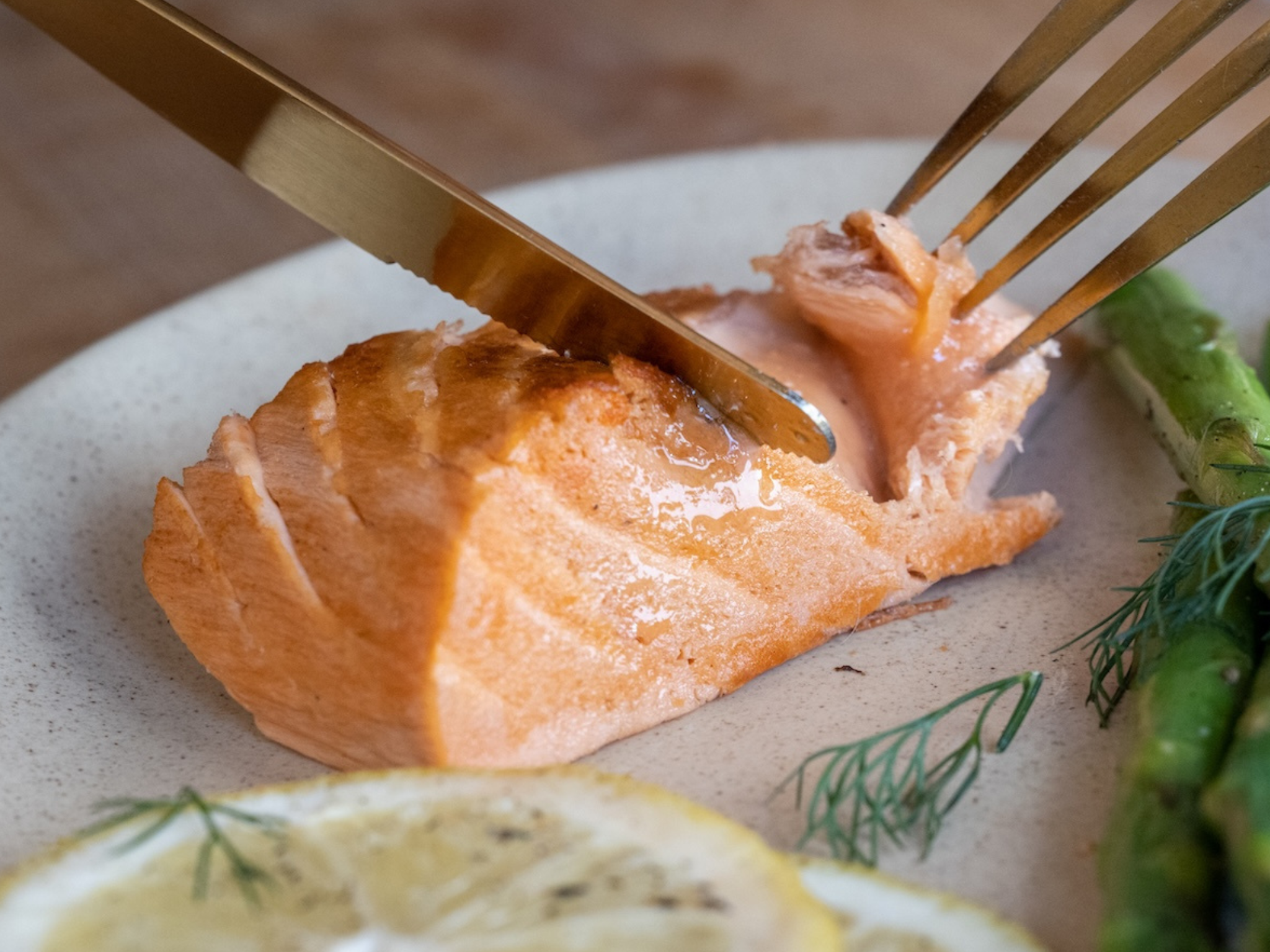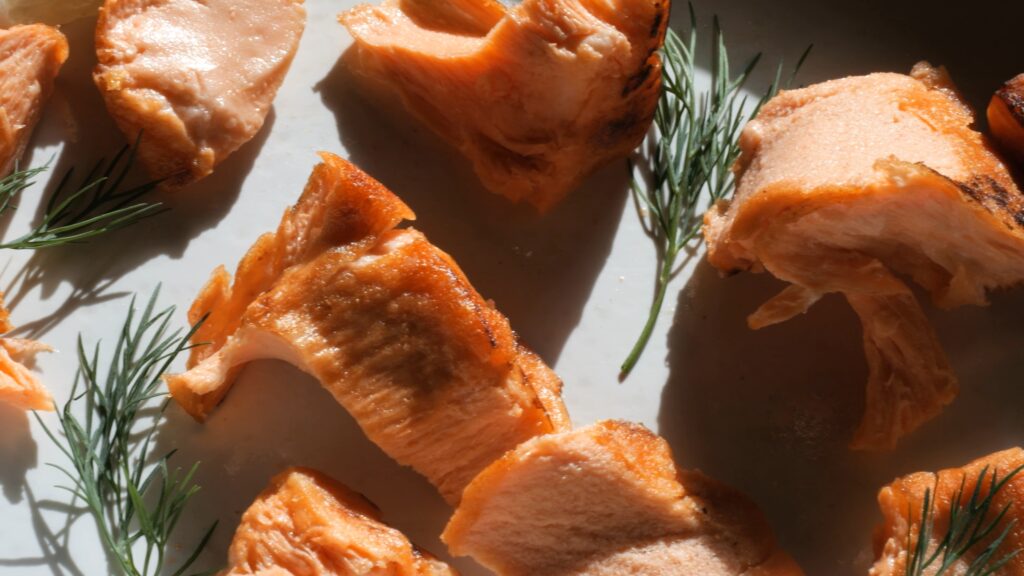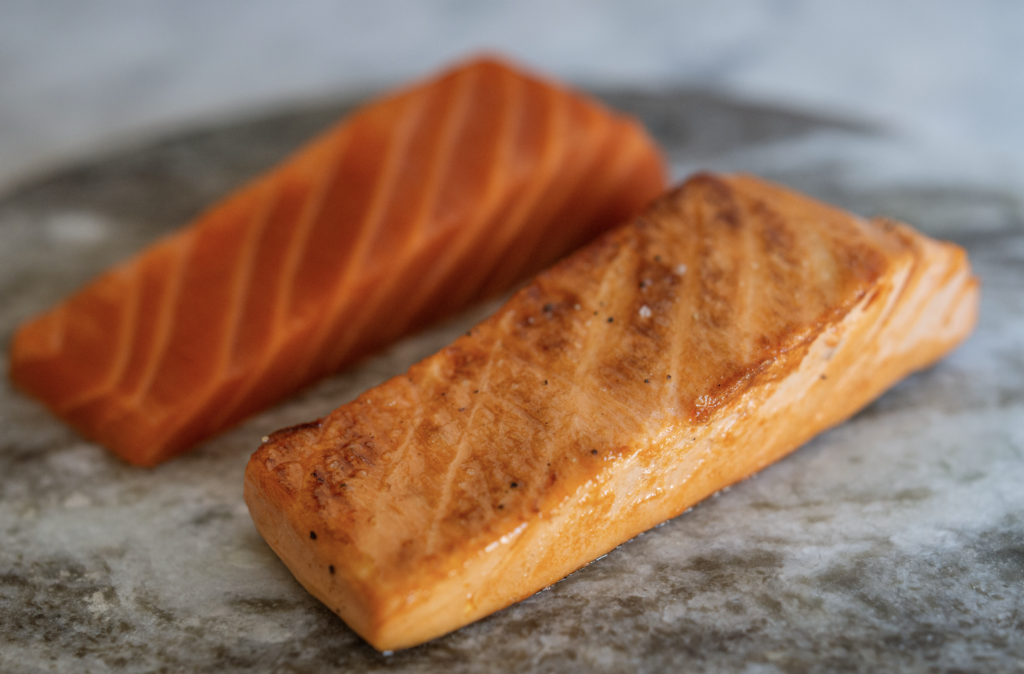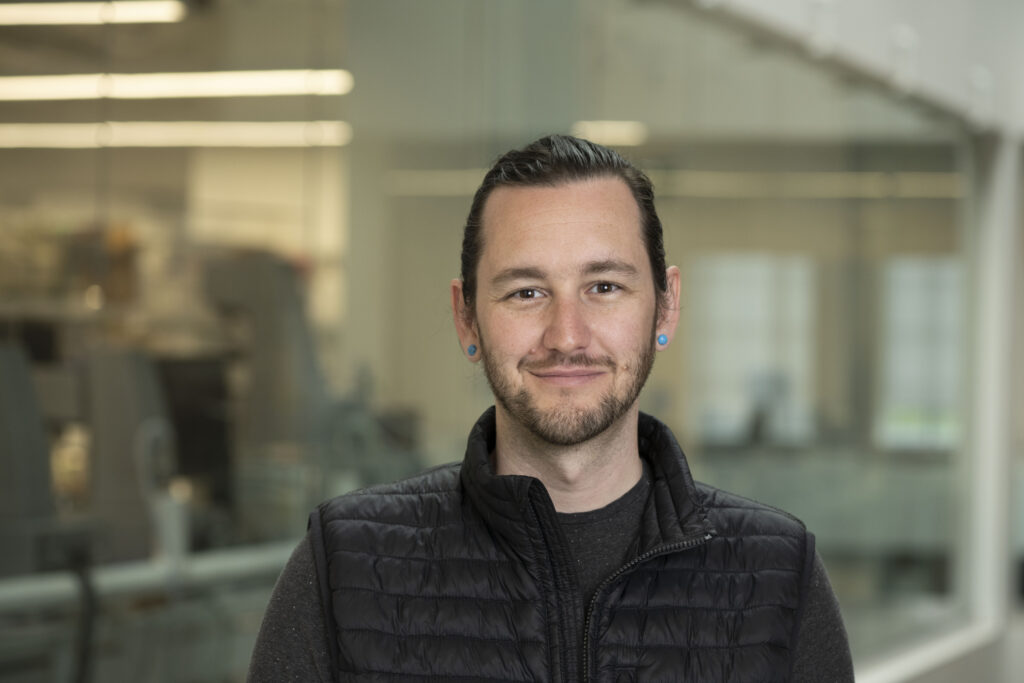
Canada’s New School Foods has attracted $6M in new capital and opened a commercial-scale manufacturing facility to bring its vegan salmon to market.
As it prepares for its commercial launch in the US and Canada, plant-based seafood maker New School Foods has received $6M in a seed extension round and opened a 28,000 sq ft production facility.
The latest investment included Inter IKEA – the holding company of the Swedish furniture giant – Good Startup, NewTree Capital and Hatch, building on existing state-led funding from Protein Industries Canada.
It brings the Toronto-based startup’s total raised to $18M, and will help it accelerate the launch of its whole-cut salmon analogue to foodservice customers.
Whether the vegan salmon appears on IKEA menus one day remains to be seen, but New School Foods founder and CEO Chris Bryson commended the furniture retailer’s “strong alignment to our mission of creating a more sustainable food system”. “We greatly admire the fact that IKEA has committed publicly to being at least 50% plant-based in their menus by 2025,” he told Green Queen.

How New School Foods makes its whole-cut salmon
New School Foods, which was established in 2021, employs directional freezing on a biopolymer gel to form thousands of microscopic ice crystals that travel away from the freezing source. The ice is then removed, leaving behind empty channels that act as a scaffold, which can be filled with proteins, fats, flavours, etc. to form meat-mimicking muscle fibres.
The “cold-based” process creates highly tunable fibres – their length, diameter and resistance can be altered to create the desirable textures. These pieces of muscle fibres are then assembled into larger structures, separated by layers of connective tissues.
“While conventional structuring processes like extrusion use heat to mimic muscle fibres, which pre-cooks the protein, we use a freezing-based technique to create muscle fibres that do not pre-cook the proteins,” explained Bryson.
“This ensures that the product looks raw, and then transforms upon cooking, providing a familiar cooking experience. And by not pre-cooking the proteins, it ensures that the texture does not end up being rubbery.”
Bryson said the method is “specifically designed to address the inherent product complexities and challenges of making whole cuts: “That’s everything from the way the product looks – both raw, and cooked, and how it actually cooks and transforms, to its texture and its taste.”
He added: “Salmon, for example, has a vibrant, shiny and translucent look, layered with parallel white lines. Those lines melt upon cooking, which enables the product to flake. And then those flakes break down into small muscle fibres. Recreating that entirety is key to driving a customer experience that will feel authentic, familiar, and worth enjoying time and again.”

Using machines identical to fishing industry
This process of making vegan salmon will now be applied on a large scale via New School Foods’ V1 commercial assembly line in the new facility in Toronto, which is designed to “host multiple stages of growth”.
Bryson described the V1 assembly line as “the very first commercial implementation of our scaffolding and directional freezing processes”. It will support the startup’s initial restaurant partners while aiming to showcase how it can produce high-quality seafood analogues.
“We’ve designed the facility to allow room for continued expansion of our production capabilities, since there will be a V2 line, and so on,” the CEO said, adding that contrary to many competitors, the company owns its production operation instead of using a co-manufacturer.
“This ensures that we have greater control over quality [and] unit costs, and can invest in continuous innovation for both our process and formulations so as to solve the most important issue at hand – creating plant-based alternatives that appeal to a wider customer audience,” he said.
“This is especially important for making whole-cut alternatives because they are significantly more complex products to create than a ground product – if you want to do it right.”
New School Foods’ technology uses adapted off-the-shelf, commercially available industrial equipment to ensure it can scale up. “Ironically, one of the pieces of equipment we use is a commercially flash-freezing machine identical to those used in the commercial fishing industry – we’re just using it for plant-based fish,” Bryce revealed.

Quality and price the ‘North Star’ of vegan seafood
The latest investment comes a few months after the company kicked off its New School Culinary Council, a collective of chefs and restauranteurs that will guide product development, recommend recipes, and support the market adoption of its vegan salmon.
The first chef it had collaborated with was Matthew Kenney of Plant Food + Wine fame. The vegan chef has endured a troublesome couple of years, with at least 12 of his restaurants closing since September 2022. Asked if Kenney is still working with the brand, Bryson indicated that the partnership had run its course for now. “As of late, we’ve mainly been working with local chefs in Toronto,” he said.
New School Foods has always targeted chefs as its point of entry in the market. “Our plan has always been to distribute via the chefs and tastemakers – 70% of the seafood purchased in the US is via restaurant orders rather than grocery/cook-at-home,” he explained.
“Since we are producing new versions of the product every week, if not multiple times per week, it’s been very important for us to get immediate market feedback to keep improving the product,” added Bryson. “This is something that we expect to continue doing; getting great feedback from experts is critical to building a great product.”

While there’s no exact launch date yet, the startup has previously suggested that it would be sometime this year. Alternative seafood has faced significant headwinds of late, with sales only making up 1% of the entire plant-based market in the US. Its slice of the overall seafood industry is similar. Brands like Akua, Ordinary Seafood and New Wave Foods have shut down in recent months, illustrating the tough market landscape.
And as consumers continue to face cost-of-living pressures, finding the right price for its salmon will be key to making people bite. Bryon agreed, saying: “Product quality and price parity need to be your combined North Star, and that’s a major reason why we’ve developed our own manufacturing operation.”
He added: “We won’t start at parity since that requires significant volume, but we’re laying the right foundation to get there. When we do launch via our restaurant partners, we expect that the price of the filet will be of a comparable price to other entrees on the menu.”
The post New School Foods Nets $6M in Funding, Opens New Factory for Vegan Whole-Cut Salmon appeared first on Green Queen.
This post was originally published on Green Queen.